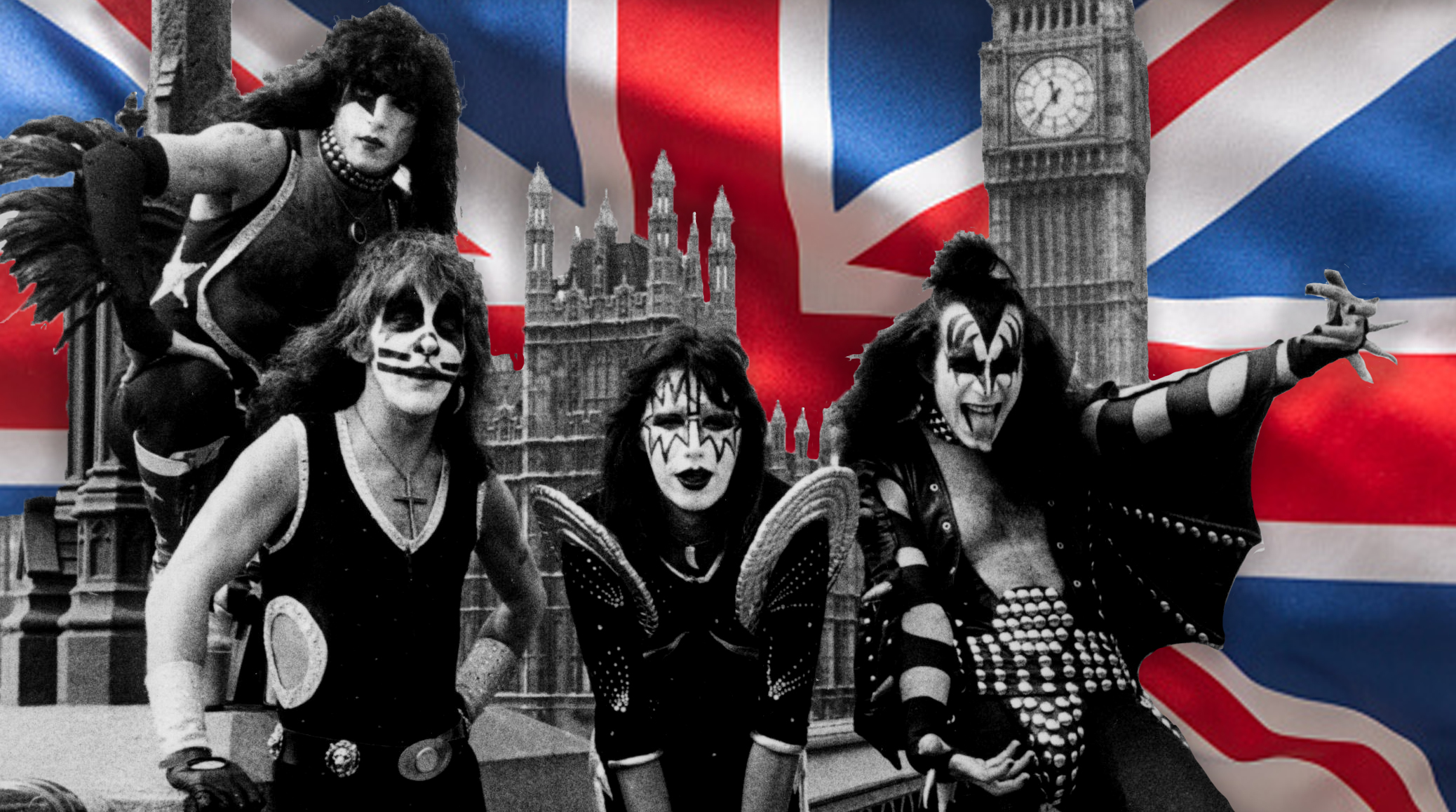"He goes to England and all of a sudden he's on the floor humping his guitar!” Gene Simmons tells how he, Paul Stanley and Ace Frehley followed Jimi Hendrix's lead and gave Kiss some British swagger
The bassist grew up adoring British bands and felt they had a wild, carefree attitude that U.S. acts lacked. Kiss set about changing that

Speaking on the origins of Kiss and the vision he and Paul Stanley had for the band, Gene Simmons has said he molded Kiss in the image of a British group in order to stand out from their "cookie-cutter" American peers.
His comments come from a grueling, nearly three-and-a-half-hour chat/ramble on Rick Rubin’s Tetragrammaton podcast in which the bassist praises British bands for their sense of adventure and love of chaos, which stood in stark contrast to what was happening on the other side of the Atlantic.
“We had the Grateful Dead. They had rhe Crazy World of Arthur Brown,” Simmons says. “Robert Plant was wearing women's tops and not afraid to have a semi-feminine kind of physicality onstage — the androgyny of it — although clearly they were heterosexual. Those mores were being toyed with.”
Kiss's musical DNA is undeniable. Even on their 1974 self-titled debut, the essence of British rock and roll was evident in music and guitar playing that borrowed from the Yardbirds, the Rolling Stones, Slade and Led Zeppelin, to name a few.
“The thing that we liked was English music,” Simmons says, "the Kinks and the Stones. American bands just weren't writing that kind of music, and the American bands didn't look that way.
“Especially Jimmy Page and Zeppelin. The guitar was worn way down on the crotch. They'd hit a chord and for no reason whatsoever the hand would swing up in the air, and a lot of these guys would do the Jesus Christ pose. American bands didn't do that. [British rock] was more theatrical and grand, and it was glamorous.”
A young impressionable Simmons kept up to speed with British bands via American magazines — “Circus and Raves, and it was in full-color” — and he sensed that American bands just weren't comparable.
Get The Pick Newsletter
All the latest guitar news, interviews, lessons, reviews, deals and more, direct to your inbox!
“You looked at Page and Plant, and you'd go 'I wanna do that!'” he reminisces. “When I first heard Zeppelin, when I was in college, I was convinced Page was a white woman doing an impression of Janis Joplin. I never knew a guy could sing that high!”
Simmons, ever the astute businessman, saw a gap in the U.S. market. Kiss were tailor-made to fill it.
“We decided to put together the band we had never seen onstage,” he explains. “The bands we saw that we loved. We loved Townshend smashing guitars. What's that about? And you're seeing Keith Moon destroying his drums. The American bands simply did not do that.”
As further evidence of the British influence, he points to Jimi Hendrix who was a man reborn once he left the States.
“Jimmy James and the Flames couldn't make any headway,” he says. “He goes to England and all of a sudden this guy's on the floor humping his guitar, setting it on fire, and playing the guitar over his head or with his teeth. It was insane. American bands: We love the Temptations, but I didn't want to be in a band like the Temptations It was too cookie-cutter.”
Simmons has also recalled how Kiss scared the life out of Black Sabbath during their David-and-Goliath tour together in ‘74, seeing it as a defining moment for the band.
Ace Frehley, meanwhile, says Kiss are lying about the real reason he left the band — on both occasions — while the guitarist has been accused by his former bandmate of lifting a Doors’ solo note-for-note and passing it off as his own.
A freelance writer with a penchant for music that gets weird, Phil is a regular contributor to Prog, Guitar World, and Total Guitar magazines and is especially keen on shining a light on unknown artists. Outside of the journalism realm, you can find him writing angular riffs in progressive metal band, Prognosis, in which he slings an 8-string Strandberg Boden Original, churning that low string through a variety of tunings. He's also a published author and is currently penning his debut novel which chucks fantasy, mythology and humanity into a great big melting pot.


